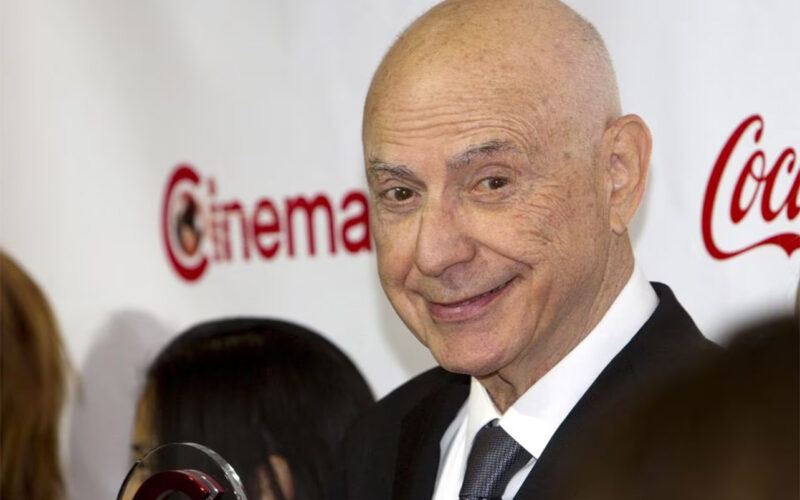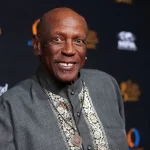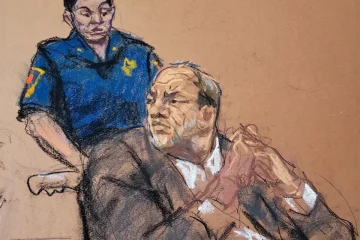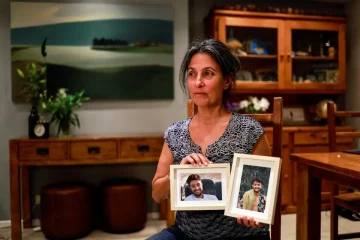[tta_listen_btn listen_text=”Audio” pause_text=”Pause” resume_text=”Resume” replay_text=”Replay”]
ALAN Arkin, a versatile and prolific American actor who thrived in both comic and dramatic roles and won an Oscar for playing a heroin-using grandfather in the 2006 film “Little Miss Sunshine,” has died at 89, his family said.
“Our father was a uniquely talented force of nature, both as an artist and a man. A loving husband, father, grand and great grandfather, he was adored and will be deeply missed,” Arkin’s sons Adam, Matthew and Anthony wrote in a joint statement.
Arkin died at his home in Carlsbad, California, on Thursday, Variety reported.
Arkin appeared in scores of films, was nominated for an Academy Award four times and won a Tony Award, Broadway’s top honours, in 1963 for his first major stage role in Carl Reiner’s “Enter Laughing.”
His first major movie role also earned him an Oscar nomination – best actor for playing a Soviet sailor in the 1966 Cold War comedy “The Russians Are Coming! The Russians Are Coming!”
Arkin was initially turned down for the “Little Miss Sunshine” role that ultimately won him a best-supporting-actor Oscar because the directors thought he was too healthy. The character was a foul-mouthed 80-year-old grandfather who was frail and shaky from years of drug abuse and bad behaviour.
“It’s the best rejection I ever got in my life – they thought I was too virile,” Arkin said, flexing his biceps and striking a muscleman pose during a 2007 interview with The New York Times.
Arkin delivered a memorable dramatic turn as a psychopathic killer in the 1967 film “Wait Until Dark,” opposite Audrey Hepburn. He later said he hated the scenes in which his character terrorizes Hepburn, saying, “I didn’t like being cruel to her. It made me very uncomfortable.”
He appeared as a deaf mute in the adaptation of Carson McCullers’ novel “The Heart Is a Lonely Hunter” in 1968, drawing his second Academy Award nomination for best actor.
In 1970, he starred in the film version of Joseph Heller’s novel “Catch-22,” putting in a strong performance in a movie that was considered a disappointment.
He also won plaudits for his performance in the 2012 thriller “Argo,” which told the true-life story of a CIA mission to free six Americans from Iran by disguising them as crew members of an elaborately concocted but fictitious film about aliens. Director Ben Affleck’s film won the Academy Award for best picture.
Arkin remained active in film and television well into his 80s. He won praise and Emmy nominations for the TV series “The Kominsky Method,” also starring Michael Douglas, which debuted in 2018.
“Did ANYONE have the range Alan Arkin had? Hilarious, sinister, insane, tragic. No mood he couldn’t live in,” tweeted actor and comedian Patton Oswalt.
Some of Arkin’s other films included “The Seven-Per-Cent Solution” in 1976, “The In-Laws” in 1979, “Edward Scissorhands” in 1990, “Glengarry Glen Ross” in 1992, “Grosse Pointe Blank” in 1997, “The Slums of Beverly Hills” in 1998, “Get Smart” in 2008, “Sunshine Cleaning” in 2008, “Stand Up Guys” in 2012 and “Going in Style” in 2017.
Not all his movies fared well. For example, he said he did “Freebie and the Bean” in 1974 because “I needed the bread.”
Alan Wolf Arkin was born on March 26, 1934, in the New York City borough of Brooklyn, but his family moved to Los Angeles when he was 11. His father, a painter and writer, lost his job as a teacher after he was accused of being a communist during the “Red Scare” of the 1950s.
Arkin was an original member of Chicago’s influential improvisational comedy troupe Second City and sang in a folk group that had a hit version of the 1950s single “The Banana Boat Song,” popularized by Harry Belafonte. Arkin also worked as a movie and stage director, made many TV appearances and wrote several books.
Arkin is survived by his wife Suzanne, his three sons, four grandchildren and a great-grandson.














